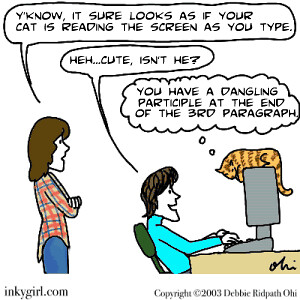Dear Homescholars,
Note that some links below are to pages inside our classroom. In most cases a simple search will find the resource easily though. To learn more about the class, please visit: http://abacus-es.com/eie/advancedwriting.html, see the links and watch the video.
This week’s feed has been posted in our classroom theater
and will take place through Google Plus.
The playlist for our 2014-2015 classes is here: http://www.youtube.com/playlist?list=PLExCxI6q5_Xnpxfr0yI8ATzOnU6SmkO2x
The playlist of 2013-2014 classes is also on Youtube:
http://www.youtube.com/playlist?list=PLExCxI6q5_XmwbFdBDNpSar91svWKDe9Y
Agenda
Debate
In the absence of submitted debate topics, let’s use: “Student use of TV/media/games should be rationed to encourage serious study.” Let’s do it. We will all try to take both sides.
Discussion of Assignments
Reading
Article: Writers Should Not Fear Jargon by Trevor Quirk.
If you went on to read his thoughtful and somewhat deprecatory but intensely eloquent review of Waking Up by Sam Harris, let’s discuss that.
Shakespeare
Everyone will have seen/read Romeo and Juliet, at least one version.
Let’s identify the quotes and do some scenes:
 Some quotes to identify in Romeo and Juliet. Who said each, to whom and under what circumstances?
Some quotes to identify in Romeo and Juliet. Who said each, to whom and under what circumstances?
- “Some consequence yet hanging in the stars.”
- “I am fortune’s fool.”
- “I defy you stars.”
- “O what more favor can I do to thee than with that hand that cut thy youth in twain to sunder his that was thine enemy.” Forgive me cousin.
- Death’s pale flag is not advanced there.
- Blistered be thy tongue.
- 100 words of that tongue’s utterance.
- And yet I wish but for the thing I have.
- She hath forsworn to love and in that vow, do I live dead that live to tell it now.
- Love moderately. Long love does so.
- Like fire and powder which when they kiss, consume.
- Not so deep as a well nor so wide as a church door but ’tis enough. ‘Twill serve.
- Mercutio’s soul is but a little way above our heads. Either thou, or I, or both shall go with him.
- ‘Tis the nightingale and not the lark that pierces the fearful hollow of thine ear.
- The more I give to thee, the more I have for both are infinite.
- There art thou happy.
- Run through the ear with a love song.
- This distilling liquor drink thou of.
- You ratcatcher!
- Here in my house do him disparagement.
- I am for you boy.
- Beauty too rich for use, for earth too dear.
- Not having that, which having, makes them short.
- ‘Tis twenty years till then.
- All are punished!
- Oh that I were a glove upon that hand.
- A rose by any other name would smell as sweet.
- The blind bow-boy’s butt shaft.
- Trespass sweetly urged.
- vile submission.
- Oh happy dagger!
- Too flattering sweet to be substantial.
- Lest that thy love prove likewise variable.
- Too early seen unknown, and known too late.
- Thou speak’st of nothing.
- A mutiny among my guests.
- A brace of kinsmen.
- Never was a story of more woe.
- It is an honor that I dream not of.
- Prince of cats.
- My ghostly father.
- You are a princox.
- A challenge.
- The forefinger of an alderman.
- Take back the villain that late thou gavest me.
- Misadventured piteous overthrows.
- Drawn, and talk of peace?
- Another out to have.
- Nor any other part belonging to a man.
- There rust and let me die.
- Come madam, let’s away.
- Much upon those years that thou art yet a maid.
- Swallowed all my hopes but she.
- He jests at scars that never felt a wound.
- Scorn at our solemnity.
- Where civil blood makes civil hands unclean.
- Verona brags of him.
- What say you to my suit?
- They stumble who run fast.
- And for that name that is no part of thee, take all myself.
- I have forgot that name and that name’s woe.
- I remember well where I should be.
- Churl! Drunk all and left no kindly drop to help me after.
- for stony limits cannot hold love out.
Scenes
I fear, too early: for my mind misgives
Some consequence, yet hanging in the stars,
Shall bitterly begin his fearful date
With this night’s revels; and expire the term
Of a despised life, clos’d in my breast,
By some vile forfeit of untimely death:
But He that hath the steerage of my course
Direct my sail!—On, lusty gentlemen!
Benvolio.
Then she hath sworn that she will still live chaste?
Romeo.
She hath, and in that sparing makes huge waste;
For beauty, starv’d with her severity,
Cuts beauty off from all posterity.
She is too fair, too wise; wisely too fair,
To merit bliss by making me despair:
She hath forsworn to love; and in that vow
Do I live dead that live to tell it now.
Benvolio.
Be rul’d by me, forget to think of her.
Romeo.
O, teach me how I should forget to think.
Benvolio.
By giving liberty unto thine eyes;
Examine other beauties.
O, she doth teach the torches to burn bright!
It seems she hangs upon the cheek of night
Like a rich jewel in an Ethiop’s ear;
Beauty too rich for use, for earth too dear!
So shows a snowy dove trooping with crows
As yonder lady o’er her fellows shows.
The measure done, I’ll watch her place of stand
And, touching hers, make blessed my rude hand.
Did my heart love till now? forswear it, sight!
For I ne’er saw true beauty till this night.
Juliet.
My only love sprung from my only hate!
Too early seen unknown, and known too late!
Prodigious birth of love it is to me,
That I must love a loathed enemy.
O Romeo, Romeo! wherefore art thou Romeo?
Deny thy father and refuse thy name;
Or, if thou wilt not, be but sworn my love,
And I’ll no longer be a Capulet.
Romeo.
[Aside.] Shall I hear more, or shall I speak at this?
Juliet.
‘Tis but thy name that is my enemy;—
Thou art thyself, though not a Montague.
What’s Montague? It is nor hand, nor foot,
Nor arm, nor face, nor any other part
Belonging to a man. O, be some other name!
What’s in a name? that which we call a rose
By any other name would smell as sweet;
So Romeo would, were he not Romeo call’d,
Retain that dear perfection which he owes
Without that title:—Romeo, doff thy name;
And for that name, which is no part of thee,
Take all myself.
Romeo.
I take thee at thy word:
Call me but love, and I’ll be new baptiz’d;
Henceforth I never will be Romeo.
Juliet.
What man art thou that, thus bescreen’d in night,
So stumblest on my counsel?
Romeo.
By a name
I know not how to tell thee who I am:
My name, dear saint, is hateful to myself,
Because it is an enemy to thee.
Had I it written, I would tear the word.
Juliet.
My ears have yet not drunk a hundred words
Of that tongue’s utterance, yet I know the sound;
Art thou not Romeo, and a Montague?
And yet I wish but for the thing I have;
My bounty is as boundless as the sea,
My love as deep; the more I give to thee,
The more I have, for both are infinite.
But come, young waverer, come go with me,
In one respect I’ll thy assistant be;
For this alliance may so happy prove,
To turn your households’ rancour to pure love.
Alas, poor Romeo, he is already dead! stabbed with a white wench’s black eye; shot through the ear with a love song; the very pin of his heart cleft with the blind bow-boy’s butt-shaft: and is he a man to encounter Tybalt?
Friar.
These violent delights have violent ends,
And in their triumph die; like fire and powder,
Which, as they kiss, consume: the sweetest honey
Is loathsome in his own deliciousness,
And in the taste confounds the appetite:
Therefore love moderately: long love doth so;
Tybalt.
Romeo, the love I bear thee can afford
No better term than this,—Thou art a villain.
Romeo.
Tybalt, the reason that I have to love thee
Doth much excuse the appertaining rage
To such a greeting. Villain am I none;
Therefore farewell; I see thou know’st me not.
Tybalt.
Boy, this shall not excuse the injuries
That thou hast done me; therefore turn and draw.
Romeo.
I do protest I never injur’d thee;
But love thee better than thou canst devise
Till thou shalt know the reason of my love:
And so good Capulet,—which name I tender
As dearly as mine own,—be satisfied.
Mercutio.
O calm, dishonourable, vile submission!
Alla stoccata carries it away. [Draws.]
Tybalt, you rat-catcher, will you walk?
Mercutio.
I am hurt;—
A plague o’ both your houses!—I am sped.—
Is he gone, and hath nothing?
Benvolio.
What, art thou hurt?
Mercutio.
Ay, ay, a scratch, a scratch; marry, ’tis enough.—
Where is my page?—go, villain, fetch a surgeon.
[Exit Page.]
Romeo.
Courage, man; the hurt cannot be much.
Mercutio. No, ’tis not so deep as a well, nor so wide as a church door; but ’tis enough, ’twill serve: ask for me to-morrow, and you shall find me a grave man. I am peppered, I warrant, for this world.—A plague o’ both your houses!—Zounds, a dog, a rat, a mouse, a cat, to scratch a man to death! a braggart, a rogue, a villain, that fights by the book of arithmetic!—Why the devil came you between us? I was hurt under your arm.
Romeo.
I thought all for the best.
Romeo.
This day’s black fate on more days doth depend;
This but begins the woe others must end.
Benvolio.
Here comes the furious Tybalt back again.
Romeo.
Alive in triumph! and Mercutio slain!
Away to heaven respective lenity,
And fire-ey’d fury be my conduct now!—
[Re-enter Tybalt.]
Now, Tybalt, take the ‘villain’ back again
That late thou gavest me; for Mercutio’s soul
Is but a little way above our heads,
Staying for thine to keep him company.
Either thou or I, or both, must go with him.
Romeo.
O, I am fortune’s fool!
I will be deaf to pleading and excuses;
Nor tears nor prayers shall purchase out abuses,
Therefore use none: let Romeo hence in haste,
Else, when he is found, that hour is his last.
What storm is this that blows so contrary?
Is Romeo slaughter’d, and is Tybalt dead?
My dear-lov’d cousin, and my dearer lord?—
Then, dreadful trumpet, sound the general doom!
For who is living, if those two are gone?
Nurse.
Tybalt is gone, and Romeo banished;
Romeo that kill’d him, he is banished.
Juliet.
O God!—did Romeo’s hand shed Tybalt’s blood?
Nurse.
It did, it did; alas the day, it did!
Nurse.
There’s no trust,
No faith, no honesty in men; all perjur’d,
All forsworn, all naught, all dissemblers.—
Ah, where’s my man? Give me some aqua vitae.—
These griefs, these woes, these sorrows make me old.
Shame come to Romeo!
Juliet.
Blister’d be thy tongue
For such a wish! he was not born to shame:
Upon his brow shame is asham’d to sit;
Romeo.
As if that name,
Shot from the deadly level of a gun,
Did murder her; as that name’s cursed hand
Murder’d her kinsman.—O, tell me, friar, tell me,
In what vile part of this anatomy
Doth my name lodge? tell me, that I may sack
The hateful mansion.
[Drawing his sword.]
Friar.
Hold thy desperate hand:
Art thou a man? thy form cries out thou art;
Thy tears are womanish; thy wild acts denote
The unreasonable fury of a beast;
Unseemly woman in a seeming man!
Or ill-beseeming beast in seeming both!
Thou hast amaz’d me: by my holy order,
I thought thy disposition better temper’d.
Hast thou slain Tybalt? wilt thou slay thyself?
And slay thy lady, too, that lives in thee,
By doing damned hate upon thyself?
Why rail’st thou on thy birth, the heaven, and earth?
Since birth and heaven and earth, all three do meet
In thee at once; which thou at once wouldst lose.
Fie, fie, thou sham’st thy shape, thy love, thy wit;
Which, like a usurer, abound’st in all,
And usest none in that true use indeed
Which should bedeck thy shape, thy love, thy wit:
Thy noble shape is but a form of wax,
Digressing from the valour of a man;
Thy dear love sworn, but hollow perjury,
Killing that love which thou hast vow’d to cherish;
Thy wit, that ornament to shape and love,
Mis-shapen in the conduct of them both,
Like powder in a skilless soldier’s flask,
Is set a-fire by thine own ignorance,
And thou dismember’d with thine own defence.
What, rouse thee, man! thy Juliet is alive,
For whose dear sake thou wast but lately dead;
There art thou happy: Tybalt would kill thee,
But thou slewest Tybalt; there art thou happy too:
The law, that threaten’d death, becomes thy friend,
And turns it to exile; there art thou happy:
A pack of blessings lights upon thy back;
Go, get thee to thy love, as was decreed,
Ascend her chamber, hence and comfort her:
But, look, thou stay not till the watch be set,
For then thou canst not pass to Mantua;
Where thou shalt live till we can find a time
To blaze your marriage, reconcile your friends,
Beg pardon of the prince, and call thee back
With twenty hundred thousand times more joy
Than thou went’st forth in lamentation.—
Go before, nurse: commend me to thy lady;
And bid her hasten all the house to bed,
Which heavy sorrow makes them apt unto.
Romeo is coming.
Nurse.
O Lord, I could have stay’d here all the night
To hear good counsel: O, what learning is!—
My lord, I’ll tell my lady you will come.
Romeo.
Do so, and bid my sweet prepare to chide.
Juliet.
Wilt thou be gone? it is not yet near day:
It was the nightingale, and not the lark,
That pierc’d the fearful hollow of thine ear;
Nightly she sings on yond pomegranate tree:
Believe me, love, it was the nightingale.
Romeo.
It was the lark, the herald of the morn,
No nightingale: look, love, what envious streaks
Do lace the severing clouds in yonder east:
Night’s candles are burnt out, and jocund day
Stands tiptoe on the misty mountain tops.
I must be gone and live, or stay and die.
Juliet.
O God! I have an ill-divining soul!
Methinks I see thee, now thou art below,
As one dead in the bottom of a tomb:
Either my eyesight fails, or thou look’st pale.
Romeo.
And trust me, love, in my eye so do you:
Dry sorrow drinks our blood. Adieu, adieu!
Lady Capulet.
Ay, sir; but she will none, she gives you thanks.
I would the fool were married to her grave!
Juliet.
Good father, I beseech you on my knees,
Hear me with patience but to speak a word.
Capulet.
Hang thee, young baggage! disobedient wretch!
I tell thee what,—get thee to church o’ Thursday,
Or never after look me in the face:
Speak not, reply not, do not answer me;
Juliet.
Tell me not, friar, that thou hear’st of this,
Unless thou tell me how I may prevent it:
If, in thy wisdom, thou canst give no help,
Do thou but call my resolution wise,
And with this knife I’ll help it presently.
God join’d my heart and Romeo’s, thou our hands;
And ere this hand, by thee to Romeo’s seal’d,
Shall be the label to another deed,
Or my true heart with treacherous revolt
Turn to another, this shall slay them both:
Therefore, out of thy long-experienc’d time,
Give me some present counsel; or, behold,
‘Twixt my extremes and me this bloody knife
Shall play the empire; arbitrating that
Which the commission of thy years and art
Could to no issue of true honour bring.
Be not so long to speak; I long to die,
If what thou speak’st speak not of remedy.
Friar.
Hold, daughter. I do spy a kind of hope,
Which craves as desperate an execution
As that is desperate which we would prevent.
If, rather than to marry County Paris
Thou hast the strength of will to slay thyself,
Then is it likely thou wilt undertake
A thing like death to chide away this shame,
That cop’st with death himself to scape from it;
And, if thou dar’st, I’ll give thee remedy.
Juliet.
O, bid me leap, rather than marry Paris,
From off the battlements of yonder tower;
Or walk in thievish ways; or bid me lurk
Where serpents are; chain me with roaring bears;
Or shut me nightly in a charnel-house,
O’er-cover’d quite with dead men’s rattling bones,
With reeky shanks and yellow chapless skulls;
Or bid me go into a new-made grave,
And hide me with a dead man in his shroud;
Things that, to hear them told, have made me tremble;
And I will do it without fear or doubt,
To live an unstain’d wife to my sweet love.
Friar.
Hold, then; go home, be merry, give consent
To marry Paris: Wednesday is to-morrow;
To-morrow night look that thou lie alone,
Let not thy nurse lie with thee in thy chamber:
Take thou this vial, being then in bed,
And this distilled liquor drink thou off:
When, presently, through all thy veins shall run
A cold and drowsy humour; for no pulse
Shall keep his native progress, but surcease:
No warmth, no breath, shall testify thou livest;
In the mean time, against thou shalt awake,
Shall Romeo by my letters know our drift;
And hither shall he come: and he and I
Will watch thy waking, and that very night
Shall Romeo bear thee hence to Mantua.
And this shall free thee from this present shame,
If no inconstant toy nor womanish fear
Abate thy valour in the acting it.
Juliet.
Give me, give me! O, tell not me of fear!
My dismal scene I needs must act alone.—
Come, vial.—
What if this mixture do not work at all?
Shall I be married, then, to-morrow morning?—
No, No!—this shall forbid it:—lie thou there.—
[Laying down her dagger.]
Capulet.
Ha! let me see her:—out alas! she’s cold;
Her blood is settled, and her joints are stiff;
Life and these lips have long been separated:
Death lies on her like an untimely frost
Upon the sweetest flower of all the field.
Accursed time! unfortunate old man!
Nurse.
O lamentable day!
Lady Capulet.
O woful time!
Capulet.
Death, that hath ta’en her hence to make me wail,
Ties up my tongue and will not let me speak.
[Enter Balthasar.]
News from Verona!—How now, Balthasar?
Dost thou not bring me letters from the friar?
How doth my lady? Is my father well?
How fares my Juliet? that I ask again;
For nothing can be ill if she be well.
Balthasar.
Then she is well, and nothing can be ill:
Her body sleeps in Capel’s monument,
And her immortal part with angels lives.
I saw her laid low in her kindred’s vault,
And presently took post to tell it you:
O, pardon me for bringing these ill news,
Since you did leave it for my office, sir.
Romeo.
Is it even so? then I defy you, stars!—
Thou know’st my lodging: get me ink and paper,
And hire post-horses. I will hence to-night.
Balthasar.
I do beseech you, sir, have patience:
Your looks are pale and wild, and do import
Some misadventure.
Romeo.
Thou detestable maw, thou womb of death,
Gorg’d with the dearest morsel of the earth,
Thus I enforce thy rotten jaws to open,
[Breaking open the door of the monument.]
And, in despite, I’ll cram thee with more food!
Paris.
This is that banish’d haughty Montague
That murder’d my love’s cousin,—with which grief,
It is supposed, the fair creature died,—
And here is come to do some villanous shame
To the dead bodies: I will apprehend him.—
[Advances.]
Stop thy unhallow’d toil, vile Montague!
Can vengeance be pursu’d further than death?
Condemned villain, I do apprehend thee;
Obey, and go with me; for thou must die.
Romeo.
I must indeed; and therefore came I hither.—
Good gentle youth, tempt not a desperate man;
Fly hence and leave me:—think upon these gone;
Let them affright thee.—I beseech thee, youth,
Put not another sin upon my head
By urging me to fury: O, be gone!
Death, that hath suck’d the honey of thy breath,
Hath had no power yet upon thy beauty:
Thou art not conquer’d; beauty’s ensign yet
Is crimson in thy lips and in thy cheeks,
And death’s pale flag is not advanced there.—
Tybalt, liest thou there in thy bloody sheet?
O, what more favour can I do to thee
Than with that hand that cut thy youth in twain
To sunder his that was thine enemy?
Forgive me, cousin!
Here’s to my love! [Drinks.]—O true apothecary!
Thy drugs are quick.—Thus with a kiss I die.
Juliet.
O comfortable friar! where is my lord?—
I do remember well where I should be,
And there I am:—where is my Romeo?
[Noise within.]
Friar.
I hear some noise.—Lady, come from that nest
Of death, contagion, and unnatural sleep:
A greater power than we can contradict
Hath thwarted our intents:—come, come away!
What’s here? a cup, clos’d in my true love’s hand?
Poison, I see, hath been his timeless end:—
O churl! drink all, and left no friendly drop
To help me after?—I will kiss thy lips;
Haply some poison yet doth hang on them,
To make me die with a restorative.
[Kisses him.]
Thy lips are warm!
1 Watch. [Within.] Lead, boy:—which way?
Juliet.
Yea, noise?—Then I’ll be brief.—O happy dagger!
[Snatching Romeo’s dagger.]
This is thy sheath [stabs herself]; there rest, and let me die.
Where be these enemies?—Capulet,—Montague,—
See what a scourge is laid upon your hate,
That heaven finds means to kill your joys with love!
And I, for winking at your discords too,
Have lost a brace of kinsmen:—all are punish’d.
Capulet.
O brother Montague, give me thy hand:
This is my daughter’s jointure, for no more
Can I demand.
Montague.
But I can give thee more:
For I will raise her statue in pure gold;
That while Verona by that name is known,
There shall no figure at such rate be set
As that of true and faithful Juliet.
Capulet.
As rich shall Romeo’s by his lady’s lie;
Poor sacrifices of our enmity!
Prince.
A glooming peace this morning with it brings;
The sun for sorrow will not show his head.
Go hence, to have more talk of these sad things;
Some shall be pardon’d, and some punished;
For never was a story of more woe
Than this of Juliet and her Romeo.
Language immersion
 Let’s discuss: this short talk by Douglas Adams on his experience as a writer. Shall we look further at his works?
Let’s discuss: this short talk by Douglas Adams on his experience as a writer. Shall we look further at his works?
 Let’s discuss this short talk by Ken Robinson on education. Does it inspire you to write an essay?
Let’s discuss this short talk by Ken Robinson on education. Does it inspire you to write an essay?
Grammar
Let’s discuss chapter 3 in the text.
Let’s discuss:
What does it mean to speak and write correctly? What standard, what set of rules, whose example should the student aspire to? There actually exists an irrefutable answer to these questions.
Very simply, correct language usage is that which conveys to the intended audience the message and the impression the writer or speaker would like to give. Really this is the only measure that counts. Let’s call it the Reader Rule. To the extent that the reader receives the intended message and impression, the language is the correct choice. It then only remains to determine what that language is, given a specific body of readers.
If the readers or listeners are college professors or academic colleagues, the appropriate written language is probably a fairly formal variety of Standard English (SE), depending of course on the relationships involved. In other environments – the construction site, jazz studio, football pitch, gridiron, rodeo circuit, oil rig, prison, in various corners of the military – the language treated here might be largely inappropriate and ill suited to acceptance and camaraderie. The languages that would be fitting in these environments, while beyond the scope of this book, can certainly be researched, scrutinized and emulated using the methods here presented – to the extent that they are accessible in some recorded form on the Net.
In the academic or literary worlds and in most realms of business, one would rarely ever be censured for not breaking a grammar rule, for not misusing a word according to its dictionary definition or for not failing to tie the parts of a sentence together properly. On the other hand, committing such errors may well be a cause of embarrassment and opprobrium. In most cases, well-crafted academic language differs very little from one English speaking country to another and when it does, the minor spelling and stylistic variations would only very rarely impede complete comprehension. It is for those who would communicate and interact comfortably in these realms that this book was written.
Essay Writing
Project discussion.
Assignments
Please do any as yet incomplete
Reading
Please read: Article: Writers Should Not Fear Jargon by Trevor Quirk. Quirk wields words beautifully. In this piece he treats the importance of using appropriate vocabulary. If you are interested, go on to read his thoughtful and somewhat deprecatory but intensely eloquent review of Waking Up by Sam Harris.
Shakespeare
 Please see the Romeo and Juliet page, watch the videos, refer to the text, try to identify the quotes.
Please see the Romeo and Juliet page, watch the videos, refer to the text, try to identify the quotes.
Language immersion
 Please watch this short talk by Douglas Adams on his experience as a writer. Shall we look further at his works?
Please watch this short talk by Douglas Adams on his experience as a writer. Shall we look further at his works?
 Please watch this short talk by Ken Robinson on education. Does it inspire you to write an essay?
Please watch this short talk by Ken Robinson on education. Does it inspire you to write an essay?
Grammar
Please go on to chapter 3 in the text.
Please read this from the introduction to the text:
What does it mean to speak and write correctly? What standard, what set of rules, whose example should the student aspire to? There actually exists an irrefutable answer to these questions.
Very simply, correct language usage is that which conveys to the intended audience the message and the impression the writer or speaker would like to give. Really this is the only measure that counts. Let’s call it the Reader Rule. To the extent that the reader receives the intended message and impression, the language is the correct choice. It then only remains to determine what that language is, given a specific body of readers.
If the readers or listeners are college professors or academic colleagues, the appropriate written language is probably a fairly formal variety of Standard English (SE), depending of course on the relationships involved. In other environments – the construction site, jazz studio, football pitch, gridiron, rodeo circuit, oil rig, prison, in various corners of the military – the language treated here might be largely inappropriate and ill suited to acceptance and camaraderie. The languages that would be fitting in these environments, while beyond the scope of this book, can certainly be researched, scrutinized and emulated using the methods here presented – to the extent that they are accessible in some recorded form on the Net.
In the academic or literary worlds and in most realms of business, one would rarely ever be censured for not breaking a grammar rule, for not misusing a word according to its dictionary definition or for not failing to tie the parts of a sentence together properly. On the other hand, committing such errors may well be a cause of embarrassment and opprobrium. In most cases, well-crafted academic language differs very little from one English speaking country to another and when it does, the minor spelling and stylistic variations would only very rarely impede complete comprehension. It is for those who would communicate and interact comfortably in these realms that this book was written.
Essay Writing
Please continue to write essays, narratives, screeds or diatribes.
Lower Priority Assignments
Terry Eagleton on the war on terror. Eagleton is one of the great speakers.
Older Assignments
(please do these if you haven’t already)
MacBeth. 
A MacBeth page has been created with two excellent video versions including one starring Sir Ian McKellen and Dame Judy Dench. Please watch.
Please watch the heated and rebarbative debate with lots of ad hominem deprecation. Note the striking difference between the language of the two debaters. Which would you prefer to emulate? Christopher Hitchens and George Galloway debate intervention in Iraq.
 Please watch this old debate beween legendary orators: William F. Buckley vs Noam Chomsky
Please watch this old debate beween legendary orators: William F. Buckley vs Noam Chomsky
Here is a fairly comprehensive List Of Fallacious Arguments
for reference.
Language immersion: Some fun with animals and language:
The Zoo in Winter. Please watch this wonderful piece by Jonathan Miller for its eloquence. How far does your spoken language need to go to mimic his?
2015 Scholastic Writing Awards
This is a contest to which we may want to submit papers.
The query letter
EIE is starting up a new blog that may need contributions from students. Let’s be very proper and submit query letters.
- The lead, which is designed to catch the editor’s attention. It might be a startling statistic, a time peg, or an anecdote. Your lead should interest the editor enough to continue reading your query.
- The why-write-it section. This paragraph (or two, if you have a particularly detailed query) fleshes out the idea, demonstrating why the readers of the magazine will be interested in the topic.
- The nuts-and-bolts paragraph. Here you give the details of the story itself. What types of sources will you contact? How long will the story be? Will it have sidebars, and if so, how many? What section of the magazine will the story fit in? What’s the working title?
- The I’m-so-great paragraph, or ISG. Here you highlight your relevant qualifications, including your writing experience and background with the subject matter. This is the paragraph in which you showcase your unique qualifications and convince the editor to give you the assignment.
Please watch the debate on US surveillance with Harvard Law Professor Alan Dershowitz and constitutional attorney and journalist Glenn Greenwald. Enjoy watching this epic eloquence battle between eristic giants.
A classroom page for examples of successful essays contains a couple of examples from the essay book, Essays That Worked edited by Boykin Curry, ISBN: 0449905179. We did read parts; please read them more thoroughly and prepare to speculate upon the characteristics that make them successful.
Please consider Shakespeare plays for watching, dramatic readings and discussion. Suggestions: Much Ado About Nothing, As You Like It, The Tempest, A Midsummer Night’s Dream, The Taming of the Shrew, MacBeth, Hamlet, Romeo and Juliet. Please refer to Masefield’s Guide to the Shakespeare Plays for a quick overview. We decided to do MacBeth, possibly followed by Romeo and Juliet
Be familiar with the list of suggested debate topics
Please read the first chapter in our textbook: SAT ACT TOEFL College Prep English Practice, available at the EIE bookstore and Amazon.com.
Please watch this High School Debate Contest, the City Club of Cleveland’s High School Debate Championship. Debate is on whether the US should support and comply with the International Criminal Court.
This is a very fine debate with positions well presented and justified. The commentary is also very useful, particularly for it’s explanation of the judges’ evaluation of the contestants.
Please watch the Oxford Union whistleblower debate.
Our online classroom contains a vast trove of English language resources ranging from full text books and audiobooks to films, plays, software and all of the assignments and activities generated in previous years. Please feel free to explore and suggest any specific items for inclusion in our high priority assignments.
Please post questions, suggestions and discussion
 Christmas party. Please feel free to bring comestibles, potables, festive play equipment or whatever may aid in our festivities. We will go ahead the the class as planned or stray from the agenda as the muse dictates.
Christmas party. Please feel free to bring comestibles, potables, festive play equipment or whatever may aid in our festivities. We will go ahead the the class as planned or stray from the agenda as the muse dictates.
 Please read/watch and prepare recitations. Think about scenes to do in class.
Please read/watch and prepare recitations. Think about scenes to do in class.  Let’s watch Christopher Hitchens on Thomas Jefferson
Let’s watch Christopher Hitchens on Thomas Jefferson
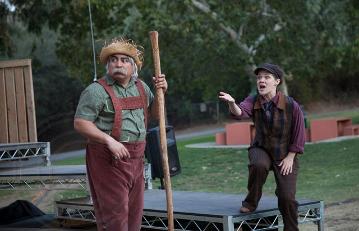 Please be prepared to recite your favorite parts this time. Our
Please be prepared to recite your favorite parts this time. Our 
 Essays by David Berlinski
Essays by David Berlinski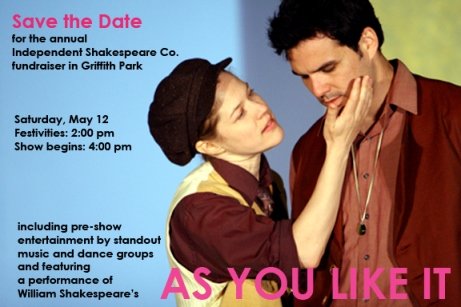 Although the class had not studied it due to miscommunications, we started our discussion of one of Shakespeare’s most delightful comedies,
Although the class had not studied it due to miscommunications, we started our discussion of one of Shakespeare’s most delightful comedies,  We concluded our discussion of
We concluded our discussion of  Documentary by Stephen Fry: Planet Word
Documentary by Stephen Fry: Planet Word Note: No class next week: THANKSGIVING.
Note: No class next week: THANKSGIVING. 

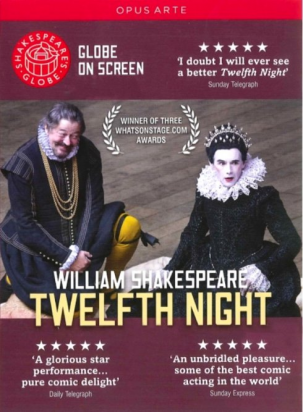 at the Laemmle Theater in Pasadena this week. This is a film of a very special stage presentation that remained very faithful to original Elizabethan stage practice.
at the Laemmle Theater in Pasadena this week. This is a film of a very special stage presentation that remained very faithful to original Elizabethan stage practice. Andy Griffith: Hamlet
Andy Griffith: Hamlet Let’s finish up ongoing assignments:
Let’s finish up ongoing assignments:  and
and 

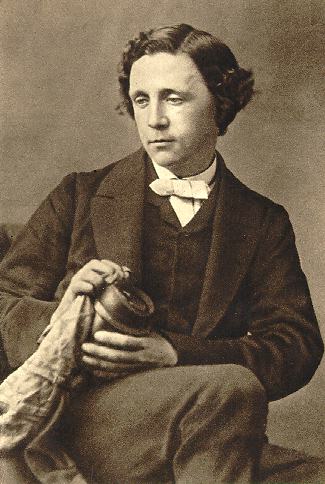
 Please start watching
Please start watching  We discussed using the comedic devices discussed in your writing.
We discussed using the comedic devices discussed in your writing.  The October 30, 2014 class.
The October 30, 2014 class. Language Immersion
Language Immersion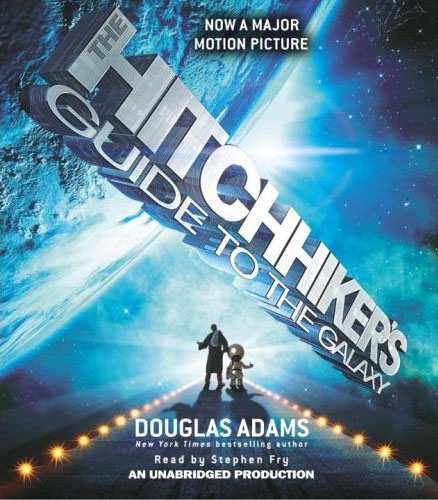 Douglas Adams
Douglas Adams
 We discussed
We discussed 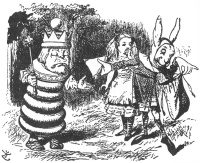 Do you see anybody coming down the road? I see nobody. Oh, that I had such eyes, that I could see nobody — and at such a distance. — Lewis Carroll
Do you see anybody coming down the road? I see nobody. Oh, that I had such eyes, that I could see nobody — and at such a distance. — Lewis Carroll Douglas Adams
Douglas Adams Please watch this
Please watch this  Please watch this
Please watch this 


 Please see the
Please see the  You will all have watched
You will all have watched  You will have put some thought into
You will have put some thought into 

 Travels by the Fireside
Travels by the Fireside
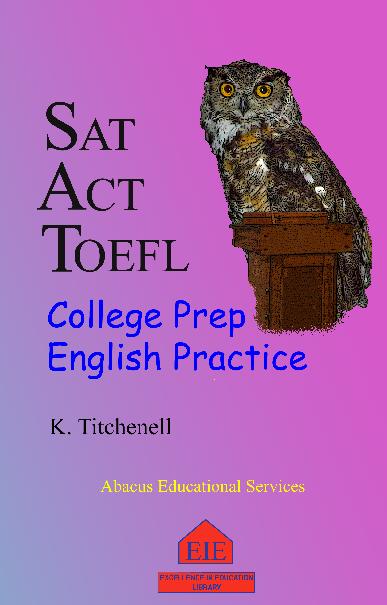
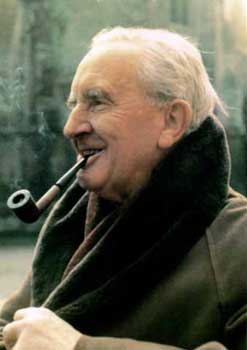 We covered a great deal last year including three Shakespeare plays (Twelfth Night, Much Ado about Nothing, Henry V) together with some Jane Austen, George Bernard Shaw, Oscar Wilde,
We covered a great deal last year including three Shakespeare plays (Twelfth Night, Much Ado about Nothing, Henry V) together with some Jane Austen, George Bernard Shaw, Oscar Wilde, 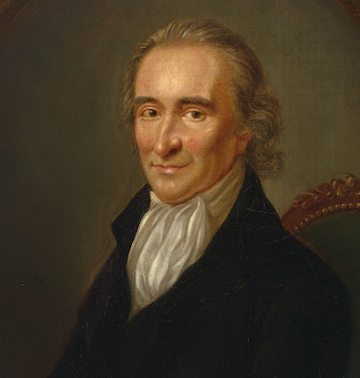
 The class uses the text:
The class uses the text: 





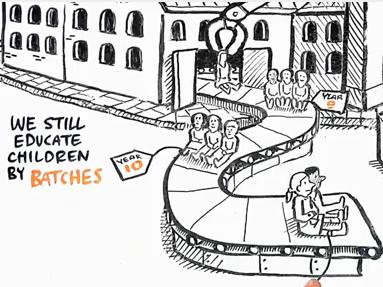



 (See
(See 

